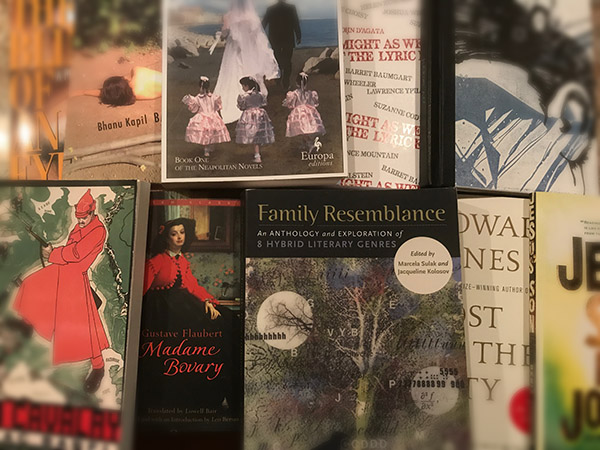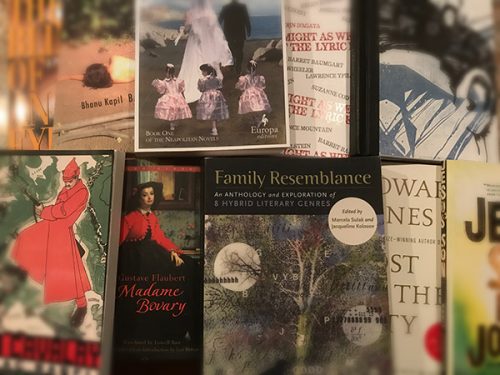
Fifty-three Pounds of Books
The semester is winding down. It has been an eventful one filled with equal parts struggle and enlightenment. And back problems. I’ve developed back problems from schlepping around all of the books I had to read these last fifteen weeks.
As a graduate student in a writing program it goes without saying you’ll be devouring a steady diet of texts. This semester I was in a workshop (required each semester), an editing class, and a Form and Theory course. Together, these three courses required twenty-seven books. These books collectively weigh fifty-three pounds, the weight of a healthy eight-year old child. Yes, I weighed my books.
I currently sport a messenger bag while traipsing around the well decorated halls of Columbia College Chicago. Within this bag you will find my laptop, charger, cell phone, a sketchbook, two notebooks, three folders, myriad pens and pencils, a daily planner, and two to three of the semester’s required texts. Such is the burden of and the blessing for the writing student. But yeah, lift with your legs.

I hope someone asks me what I’m reading this week.
While we write in all our classes, the workshop is the only one devoted exclusively to writing. For this semester’s workshop, nonfiction essays, I only needed to procure two anthologies exploring the many forms an essay can take. Workshops aside, classes tend to be reading heavy for the first two thirds of the semester before students focus on longer writing projects in the last third.
My texts this semester ranged from golden chestnuts like Billy Budd by Herman Melville and Madame Bovary by Gustave Flaubert to works from cutting edge alternative presses, including Intersex by Aaron Apps and Float by Anne Carson. Back pain aside, I am thankful to have encountered and discussed every one of these books. Each has taught me something amazing, unlocked with the guidance of my professors.
Though most writers I know are compulsive book hoarders, one needn’t buy all the books assigned each semester. Many will be available from the Columbia College Chicago library, the Chicago Public Library, or at any number of other libraries available to us via inter-library loan. Industrious graduate students can also work out complex reading schedules and pass a single copy of a given book between themselves.

This is not Columbia’s library. It’s my house.
Of course, certain courses such as my Form and Theory: Non-Narrative Thought class will require texts not so easily found. T Clutch Fleischmann, my instructor in this class, encouraged us to purchase directly from the publisher because more money goes to the author and the publisher stays a little less in the red. Buying from huge online stores, they say, goes against what we as writers ought to stand for.
Regardless of where, I chose to purchase all my books. Not only does having them make me look smart, but having read them makes me actually smart. I know I will refer to them over and over again, and read them each many times in my life. It’s an investment well made. It also helps keep my chiropractor in business.
